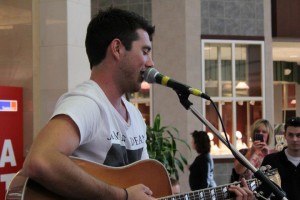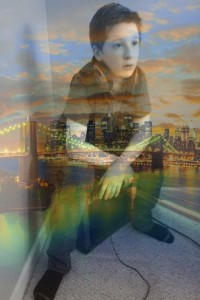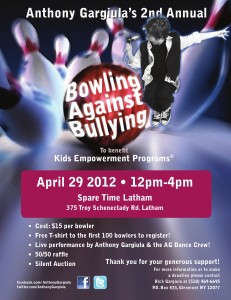Today’s interview is with musician Casey Stratton:
Hi, Casey! I hope you’re staying safe and healthy during current events. What are you doing to stay creatively motivated in these unusual times?
I don’t know that I am actually all that motivated, to be honest. I have been struggling with motivation for a long while, even before COVID-19 hit the states. I often wonder if it’s my medications for my heart. After having two heart attacks in 2017 I have lost a lot of motivation. I did get a little spike over the last weekend and started the first song I’ve written since August of 2019. I am hopeful this well of inspiration will continue. One thing that is really inspiring me is Brené Brown’s new podcast, Unlocking Us.
Since June is Pride Month, I have to ask: how has being gay influenced or informed your music?
It’s interesting that my first thought was about pronouns. In my teens I used “he” but then I entered the music business in 1995 and it quickly became clear that I should not reveal my sexuality so everything turned to “you.” I never lied and said I was straight and it was pretty obvious I wasn’t but I wouldn’t talk about it to the media. I am somewhat conflicted about that now but at the time my motivation was that I wanted to be known as a musician, not as a gay man. And then, and probably still now, that adjective will always be there. “Gay musician.” I just thought it would be a distraction and labels were pretty clearly rejecting me for it. The music was “too sensitive.” Coded language. Then Sony famously asked me not to come out then got lazy with marketing and outed me to the media without my permission! I was furious. So for years gay media tried to trick me into disclosing. I had a reporter openly admit his editor told him to trap me. It was a very uncomfortable time. Now - being gay is something that I feel I have worked out in my songs over the years. I have processed all my relationships through music and I think being gay does bring a sensibility to things, knowing what it’s like to be “other.” Many people say my songs say the things we think but don’t admit. Maybe that is part of it.
I’m always interested: what does your creative process look like? Has it changed at all since you started writing music?
My creative process is slower than it used to be. When I was young I sometimes wrote two songs a day! Now I can go months or years without writing anything. I’m less compelled to do it. Every once in a while I get an idea from a thought or dream, or another song will inspire me. But on a regular day I start with the keyboard, guitar or harp. I start playing, sometimes with a sound I like or the piano. My brain starts deciding what chords to put together, what the instrumental structure should be. I will get the main idea and play it over and over, then start deciding what the production should be like. The song kind of knows what it wants and I have to translate that as best I can. Along the way I usually start singing nonsense to get a sense of the melody and rhythm for the vocal. I put the whole track together and then I write the words, generally about 3 hours into the process. This is usually done quickly. I sit with my feet on the piano bench when I write words. I always use card stock and a black, ultra-fine Sharpie. It’s like a ritual that I have been doing since 1998.
You recently made a series of posts on Facebook celebrating the anniversary of your album Standing at the Edge. What inspired you to talk about the writing of each song on the album? Did the writing of those essays get you thinking about the songs in a different light?
Standing at the Edge is my most listened to work, mostly because it was my only major label release. I had an uneasy relationship with it for a really long time so it was bittersweet that it was so many people’s favorite. I was not happy with the compromises I made and felt it was my least authentic work. But my relationship with it has softened over the past few years. While it may be the “least me” it was also the most collaborative thing I’ve ever done. So now I feel all the people in it. It’s not just about me like the rest of my catalog. I leaned in and decided to reflect on each song, mostly as something to engage in during the quarantine. “Normal” shifted for so many of us and I wanted to put something out there. Because it’s such a listener favorite I thought it would be fun to talk about the songs but also the recording process. It was such an amazing experience and a time of my life that I look back on with great affection. I loved being in a professional studio 6 days a week and working with an amazing team of creative people. So I enjoyed taking the trip down memory lane and hearing from people about how the songs affected them as well. I love hearing how people interpret my work or how it has influenced them or helped them process things.
You’ve launched a new weekly podcast. Tell us about it!
With a wink to the audience it’s called Standing at the Edge. Season one is going to be 12 episodes focusing on the theme of identity. The first 4 episodes will be me talking to the audience but eventually I will have a weekly guest as well. People in my life who inspire me. We’ll talk about the various identities we inhabit and how that affects our lives. I wanted to do something new and different and engage with people through the podcast medium. I listen to podcasts every day on my 3 mile walks so that inspired me to come back to podcasting since I ended my last podcast in 2011.
Other than the podcast, what are you working on now and what do you have coming out soon?
I have just finally started my 30th album. I feel the pressure! It’s been 3 years since I made a record which is the longest I have ever gone since 1995 when I made my first record. 25 years! Time has flown. This one feels huge not only because it’s my 30th but because I have had two heart attacks, a spinal surgery, lost a job, gotten a new job and met my husband and got married during those 3 years! Quite a lot to process. The theme is going to be resilience. I have learned how much I can survive, quite literally. I have seen how strong I can be. It’s very eye opening when you face death. I’m going to be exploring that and approaching things with the lens of survival and tenacity.
And finally, where can people find you and your work online?
I’m on most of the social media platforms except Tik Tok. I feel too old for that. I am @caseystratton on Twitter and Instagram and @caseystrattonmusic on Facebook. My website is caseystratton.com and my Bandcamp store is at store.caseystratton.com - My work is also on Apple Music, Spotify and Tidal although there are more titles to stream on Bandcamp than anywhere else.
Casey Stratton is a singer/songwriter/producer who has recorded 29 albums and has released even more EPs and B-side collections over the past 24 years. He graduated from Interlochen Arts Academy in 1994 and began his professional music career in Los Angeles in 1995. In 2002 he signed to Sony Music Entertainment and released his debut major label album, Standing at the Edge, in 2004. In 2005 he returned to being independent after realizing the corporate music world was not a good fit for him and his process. He continues to write and record from his home in Grand Rapids, MI. He is also a non-non-profit professional and serves as the Y-Achievers Director at the YMCA of Greater Grand Rapids which provides free programming for middle and high school students.








